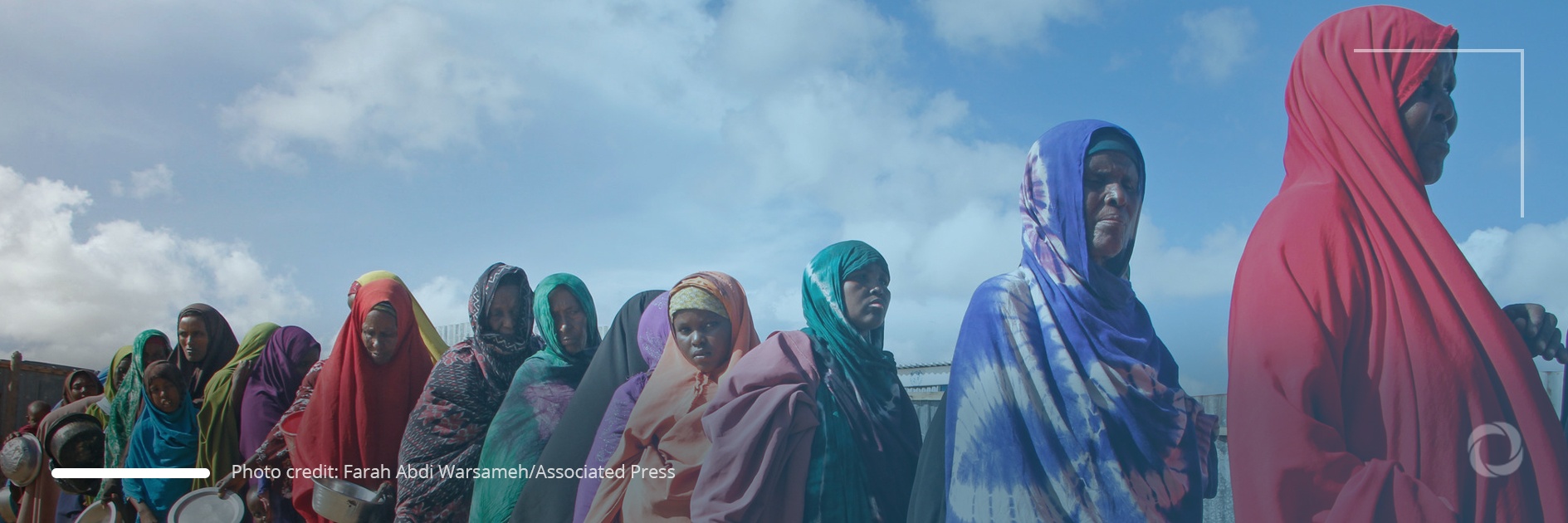The COVID-19 pandemic has led to a dramatic economic downturn in Africa and contributed to the worsening food security situation there. The most recent estimates show that over 20% of the population on the continent, some 281.6 million people, faced hunger in 2020 which is up by 46.3 million compared to 2019.
Moreover, 346.4 million Africans suffered from severe food insecurity while 452 million faced moderate food insecurity. These are the findings of the 2021 Africa Regional Overview of Food Security and Nutrition, an annual report by the African Union Commission (AUC), the Food and Agriculture Organization of the United Nations (FAO), and the UN Economic Commission for Africa (UNECA).
The report reveals that the continent is unlikely to meet the targets of Sustainable Development Goal 2 which are to end hunger and ensure access by all people to safe, nutritious, and sufficient food all year round.
The situation is expected to have further deteriorated this year with no easing of the main drivers of food insecurity and malnutrition such as conflict, climate variability and extremes, economic slowdowns and downturns, and the unaffordability of a healthy diet.
Short-term measures to address the hunger challenge include countries providing humanitarian assistance and effective social protection measures, the report says. In the longer term, countries will need to invest in agriculture and related sectors as well as in water, health, and education services.
The AUC, FAO, and UNECA have called for the transformation of agri-food systems noting that there are many considerable challenges to improving food security and nutrition on the continent and it will take close collaboration across countries and at the international level to address these effectively.
In response to the report, Christo van der Rheede, Executive Director of Agri SA, which is the biggest federation of agricultural organisations in South Africa, listed infrastructure, markets, bio-security, finance, and technology among the factors that need to be taken into account to transform agri-food systems in Africa and South Africa.
“Infrastructure is essential for a flourishing agricultural economy to ensure the free flow of goods to get from one country to another. This includes roads, harbour, and rail infrastructure. We need these to operate cheaply, efficiently, and timeously to honour trade agreements and timelines,” he said.
In addition, he highlighted that African governments need to work together to ensure that favorable trade agreements are in place for the continent through agreements such as the African Growth and Opportunity Act (Agoa) and the African Continental Free Trade Agreement (AfCFTA).
Rwandan President, Paul Kagame, who spoke at the UN Food Systems Summit Pre-Summit earlier this year, identified similar trends around agri-food systems on the continent when he noted that agriculture and agri-business, especially in Africa, will drive the attainment of the Sustainable Development Goals.
“In Africa, 70% of the working-age population is employed in the agricultural sector. But our continent’s food markets are often fragmented, and links to food processing and value-added services are sometimes lacking. Digital technologies and biotechnology are playing a greater role in African agriculture, but too many farmers do not yet have reliable access. Financial services and products for farmers, including insurance, are generally inadequate.”
“For Africa, the central goal is to halt our continent’s over-reliance on food imports, end malnutrition, and create millions of new jobs in the food economy. In doing so, we will strike the right balance between people and the planet,” Kagame said.

